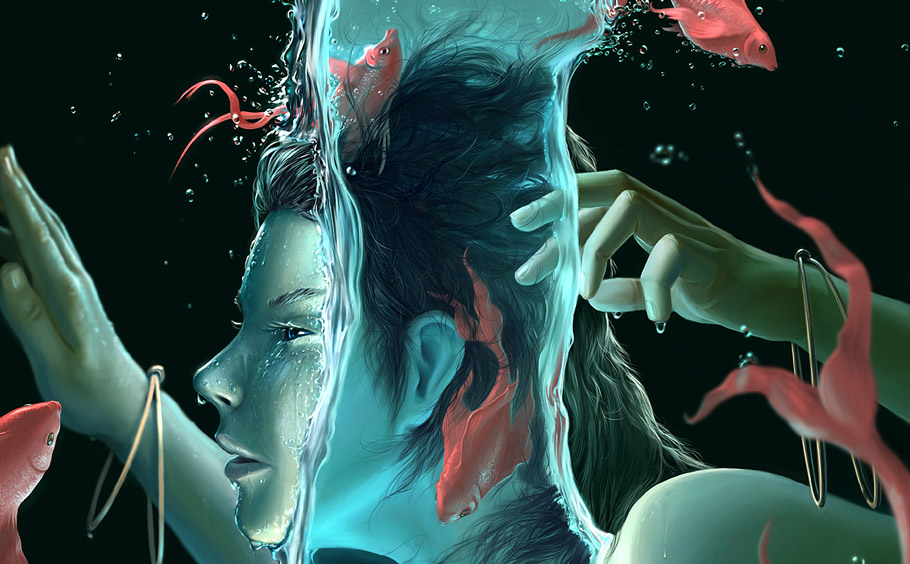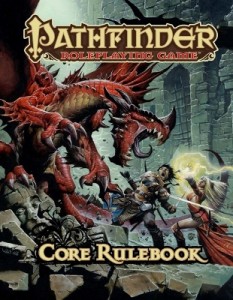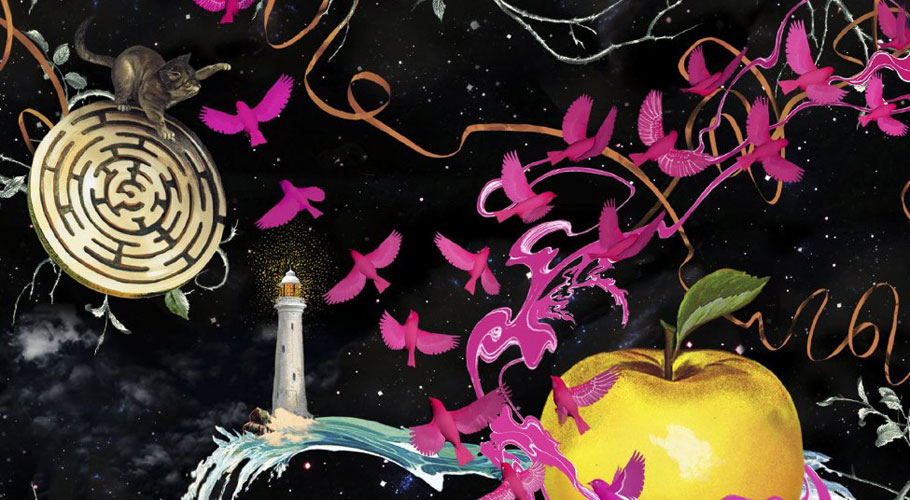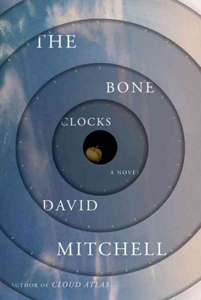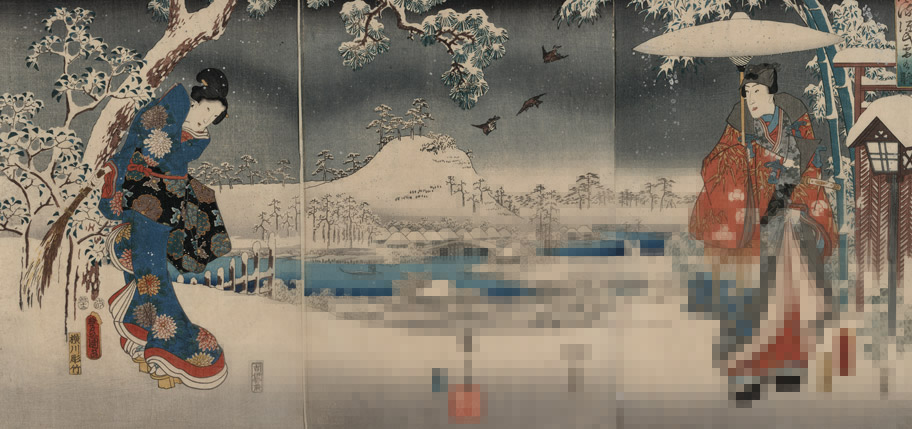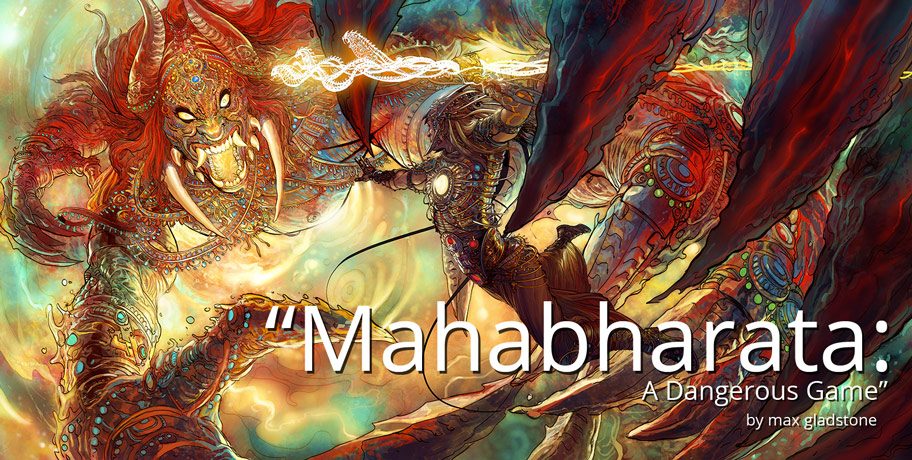Zhuangzi and Huizi cross a bridge over the Hao river. Minnows dart below, silvery and swift. Zhuangzi leans so far over the railing he almost falls. “They swim about so freely—they go wherever they like. That’s happiness, for a fish.”
Huizi crosses his arms; he realizes he’s wrinkling his silk gown, and crosses his arms differently so the gown’s sleeves hang smooth. “You’re not a fish,” he says. “On what basis do you claim to know what fish like?”
Zhuangzi turns back and raises one eyebrow in that way he knows pisses Huizi off. “You’re not me. On what basis do you claim to know what I know?”
We’ve all been there.
We sit across from a friend or an enemy at dinner, standing beside an acquaintance in a bar, we lean against a con party wall, we walk side by side along the river with a lover or a friend. Maybe the conversation skidded out when one of us mentioned unions or the inheritance tax, expecting reflexive “oh sure” agreement and finding a defensive, pointed entrenchment; maybe we’re talking about our feelings and they’re not listening; maybe they said something we find unconscionable, or the other way round. And we feel that hot pressure behind our forehead, because they are just… not… getting it.
We’re homo sapiens on paper, but sapientia’s worth squat without communication. When the first proto-human had her first thought, she looked around for someone to share it with. How many times do you think we, as a species, got that far without reaching the next step—without managing to say “Hey, check this out?”
Cognition research suggests that animals do a lot more of it, cogitating I mean, than we used to think, which won’t surprise anyone who’s tried to keep a poodle in their back yard, so it’s hard to say when that leap happened. We made it back when we were habilis, if not earlier. (And we’re not the only ones who did—whales have languages and dialects.) But still, every once in a while I think about those occasional isolated nodes, the stars that burned before there were other stars to shine against. Think about the loneliness of having a thought and not being able to pass it along.
And we go back there again and again—at the table, at the bar, near the wall, by the riverside, and for all our hundreds of thousands of years of practice, the gap from mind to mind seems uncrossable.
How do we talk to one another? Read More »
